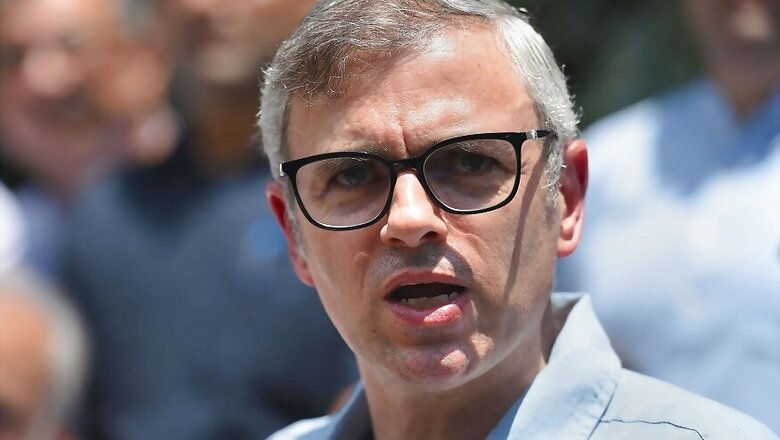
views
New Delhi: The National Conference mounted a legal challenge in the Supreme Court on Saturday to the changes made in the constitutional status of Jammu and Kashmir, contending that these have taken away rights of its citizens without their mandate.
Arguing that the legislation approved by Parliament and the orders issued by the President subsequently were "unconstitutional", the petition prayed for these to be declared as "void and inoperative".
The petition has been filed by Mohammad AKbar Lone and Justice (rtd) Hasnain Masoodi, both Lok Sabha members belonging to the NC.
Lone is a former Speaker of the Jammu and Kashmir Assembly and Masoodi is a retired judge of Jammu and Kashmir High Court who ruled in 2015 that the Article 370 was a permanent feature of the Constitution.
They have challenged the Jammu and Kashmir Reorganisation Act, 2019 and the Presidential Orders that have followed.
The Presidential Orders paved the way for application of entire provisions of the Constitution in Jammu and Kashmir and also have the effect of nullifying Article 35A and completely abrogating Article 370.
While challenging the Centre's decisions to scrap provisions of the Article 370 that accorded special status to Jammu and Kashmir, and dividing it into two Union Territories, the two MPs have sought a direction to declare the Act and the Presidential Orders as "unconstitutional, void and inoperative".
The petitioners said that the legislation and the Presidential Orders are "illegal and violative" of fundamental rights guaranteed under Article 14 and 21 of the Constitution to the people of Jammu and Kashmir.
The two MPs submitted that the apex court now has to examine whether the Union government can "unilaterally" unravel the unique federal scheme under the cover of President's rule while undermining crucial elements of due process and rule of law.
"This case, therefore, goes to the heart of Indian federalism, democratic processes and role of the apex court as the guardian of the federal structure," the petition said.
They submitted that Article 370 was extensively considered as carefully drafted in order to ensure the peaceful and democratic accession of the former princely state of Jammu and Kashmir to the Indian Union.
The two parliamentarians from Jammu and Kashmir contended in the petition, filed through Advocate Mahesh Babu, that the Presidential Orders and the new legislation "unconstitutionally undermine the scheme of Article 370.
The first Presidential Order uses Article 370 (1)(d) -- this was meant to apply other provisions of the Constitution to Jammu and Kashmir -- to alter Article 370 itself and thereby the terms of federal relationship between the J-K and Union of India, they submitted.
President Ram Nath Kovind on Friday gave assent to a legislation for bifurcation of Jammu and Kashmir, and two Union Territories -- Jammu and Kashmir, and Ladakh -- will come into existence on October 31.
October 31 happens to be the birth anniversary of the country's first home minister Sardar Vallabhbhai Patel, who was instrumental in the merger of about 565 princely states into the Union of India following Independence.
The Parliament had earlier this week given its nod to the legislation for bifurcating Jammu and Kashmir, a bold and far-reaching decision that seeks to redraw the map and future of a region at the centre of a protracted militancy movement.


















Comments
0 comment